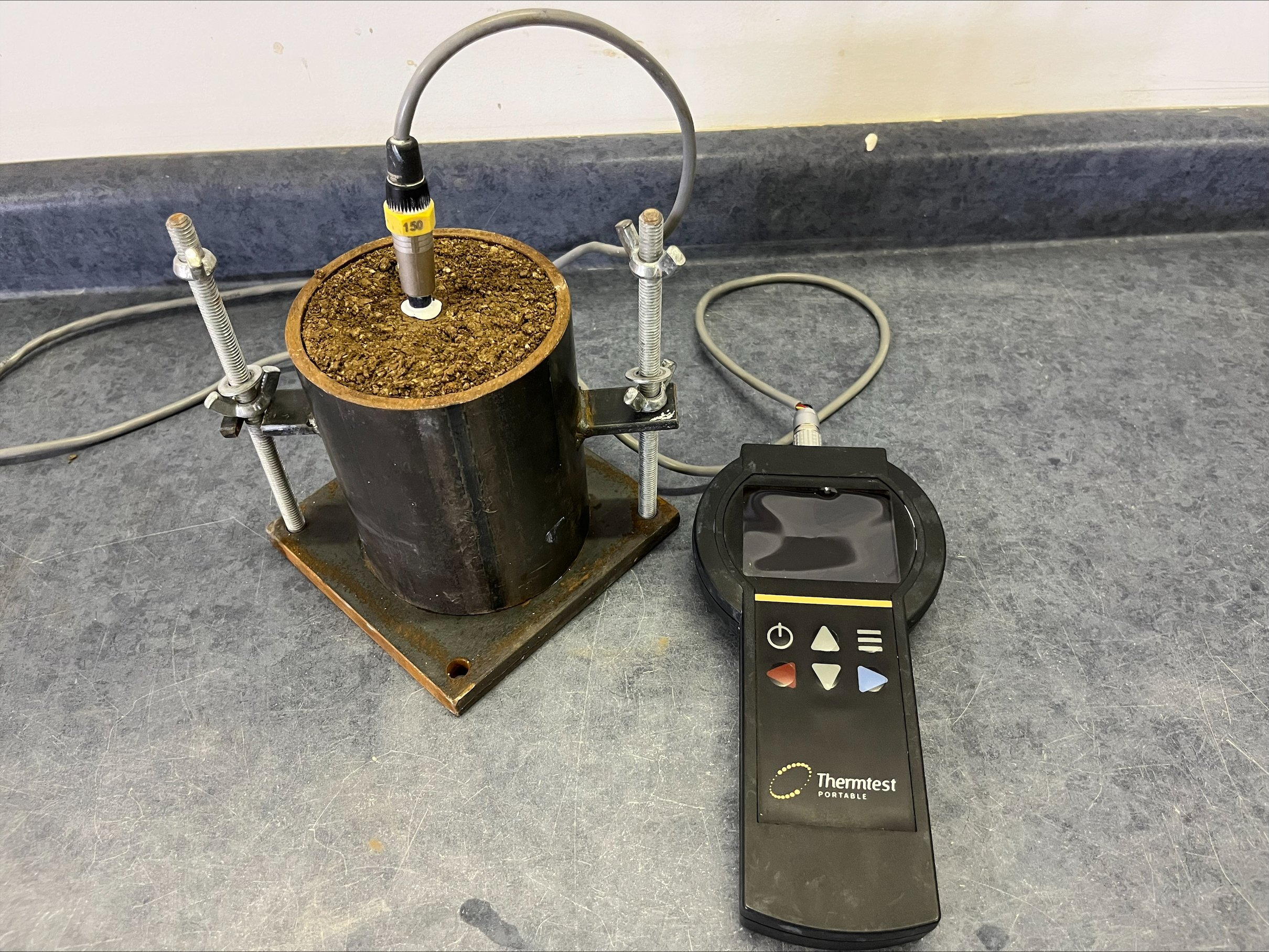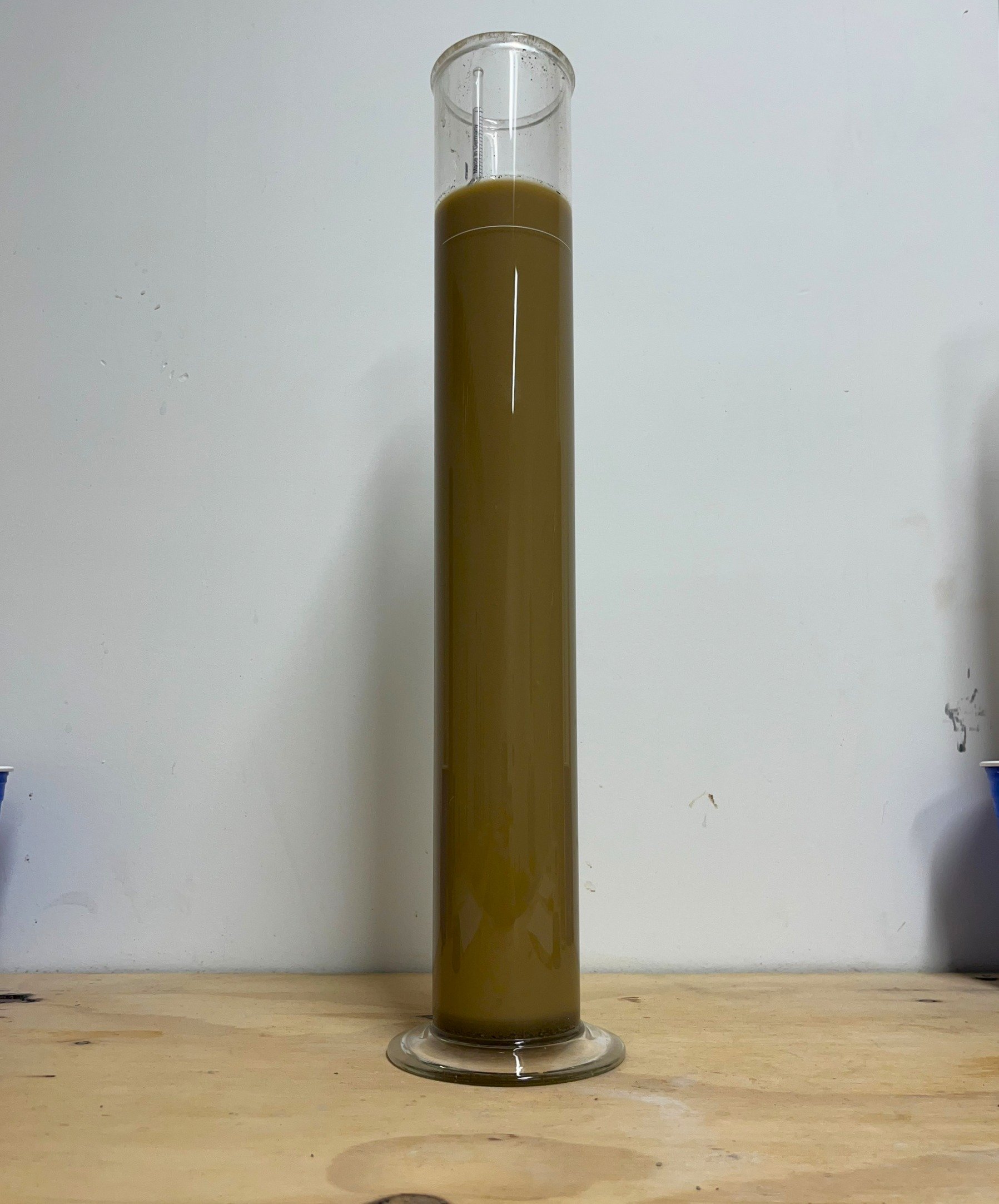
T-TIME ANALYSIS
OVERVIEW
At PRI Engineering, our in-house geotechnical laboratory offers precise T-Time analysis (or percolation rates) to support a wide range of subsurface design and planning needs.
Understanding how soil absorbs and transmits water is essential for effective land development, drainage planning, and infrastructure performance. Through grain size analysis and laboratory-specific T-Time testing, we provide reliable data to inform your project.
T-Time analysis is a key indicator of soil permeability, helping engineers assess site suitability and design requirements. While it can be applied across various types of projects, T-Time testing is most commonly and critically used in the design of septic systems, where accurate assessment of soil absorption capacity is essential.
OUR T-TIME ANALYSIS SERVICES INCLUDE
GRAIN SIZE ANALYSIS
Comprehensive laboratory testing in accordance with MTO LS-602 and LS-702 grain size analyses to identify soil characteristics impacting filtration rates.
LABORATORY SPECIFIC T-TIMES
Accurate percolation rate assessments based on particle size distribution curves.
CONSTRUCTION INSPECTION SERVICES AND MATERIALS TESTING
PRI can provide additional support through our Construction Inspection Services and Materials Testing, including in-situ percolation testing to supplement laboratory results.
WHAT A T-TIME ANALYSIS TELLS YOU
A T-Time Analysis (also known as percolation or percolation time testing) provides critical information about how well the soil at a site can absorb and treat wastewater. Specifically, it tells you:
Soil Permeability Rate: The speed at which water moves through the soil, measured in minutes per centimetre (min/cm).
Suitability for Septic Systems: Whether the soil is absorbent enough, and not too fast or too slow, to safely handle effluent from a septic system.
System Design Parameters: The size and type of septic system needed (e.g., conventional, raised bed, tertiary treatment) based on how quickly the soil can accept and treat wastewater.
Depth of Usable Soil: How much soil is available above bedrock or groundwater for the effluent to travel through and be naturally filtered.
Soil Consistency and Layering: Helps determine if multiple soil layers will impact the uniform movement of effluent.
RELATED GEOTECHNICAL LABORATORY TESTING SERVICES
SOIL TESTING SERVICES
Laboratory soil testing vital for design of stable foundations, selecting suitable materials, mitigating risk, ensuring quality and predicting performance. Thorough geotechnical laboratory testing helps ensure you build on a solid foundation, and design foundations for a structure that lasts.
THERMAL RESISTITIVITY TESTING
Our Thermal Resistivity Testing service offers precise analysis of soil and material properties to evaluate thermal conductivity, critical for ensuring the efficiency and safety of underground power cables and other buried utilities.
CONCRETE TESTING SERVICES
PRI Engineering’s Canadian Council of Independent Laboratories certified concrete testing laboratory performs compression testing and common field tests to help you meet your quality goals.








